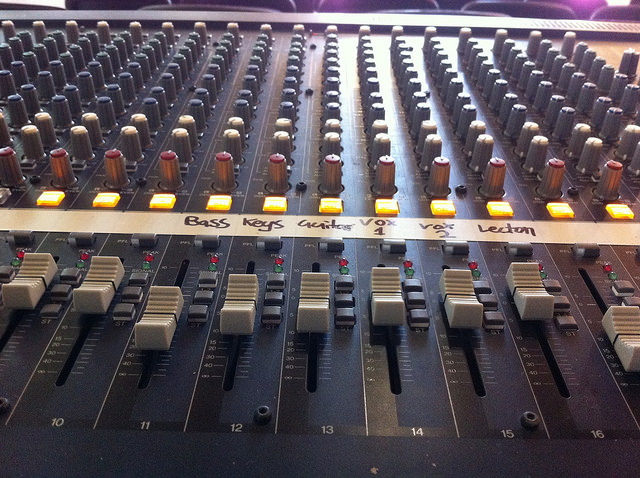Computers takes on producers
Interview with
Technology has long been part of music production, but now researchers at  Queen Mary University of London are taking it one step further, replacing producers all together. They gave us two pieces of music, one put together by a machine and one by a person. Dr Josh Reiss talks Chris Smith through the process, starting with the role of a producer...
Queen Mary University of London are taking it one step further, replacing producers all together. They gave us two pieces of music, one put together by a machine and one by a person. Dr Josh Reiss talks Chris Smith through the process, starting with the role of a producer...
Josh - Typically with any audio production task, there's lots of different sound forces coming in and so the role of the producer is to combine those sources in such a way that it produces a nice clean blend of all of the sounds, while at the same time ensuring that everything can be heard, and heard intelligibly. So what the producer does is record all of the content and mix it together applying a variety of effects to adjust the levels, and adjust the relative strengths of each of the frequencies and the loudness ranges for all of the sources.
Chris - And that's what you've done with those two sample tracks that we played just now?
Josh - Yes. So it's a team of researcher working with me and, essentially, they've developed a variety of different algorithms or software techniques that will listen to all the incoming content and the interaction between all of these different sound sources, and make judgment calls of how to apply the effects on each of them.
Chris - Now the pieces I played you, you don't know which order I played them in? What order do you think I played them in? Which do you think was the human and which do you think was the machine?
Josh - Yes. So I thought I knew but now I'm not so sure. I think it was the second one that was the machine and the first that was the human.
Chris - Actually you're the wrong way round. So your system must be really very good because it's even fooling you?
Josh - Oh right. Yes, yes that surprises me a bit. So that's the goal of our system to do something sufficient quality that it can be used in situations where a mix can't be done or can't be done quick enough, or to provide very good pre-sets for someone to enhance even further.
Chris - One thing that this system won't do though is to bring to the party the creativity, the spontaneity, and the thinking outside the box that a really very good producer would. This is a computer programme which means it follows rules.
Chris - That's exactly right, although we have looked at ways in which those rules can continue to learn and adapt but, when we've evaluated the system, we've often found that different components will consistently yield a pretty good mix of the content. Whereas the human might create and amazing mix, or one that some people love and some people hate. And so it's all these artistic and creative decisions that we're not doing but we are able to deal with the technical aspects and, some of those technical aspects, because we can do all of this processing we might be able to do even better than a human.
Chris - I mean we were asking Jon this earlier with respect to how the traditionalists at Abbey Road are receiving the incursion of new technology into their domain. How is this going down with the pros? If you show a pro producer your platform - invite them to play with it, how do they react?
Josh - Jon and I have had discussions about this before. So, as an example, there was a write-up about this work in the New Scientist a little while back, and in the online discussion forum about it, one well known record producer - who of course I'm not going to mention - said "a complete waste of time and money." And another one wrote "I can't believe you even thought this rubbish was worth printing." So some producers do feel threatened by this like happens with any disruptive innovation technology, but another one, who's won several Grammys for his work said "Am I in favour of technology that may one day put me out of business? Yes I am, as long as it's done well."
- Previous 20 second music maker
- Next Gesture controlled electronic music










Comments
Add a comment